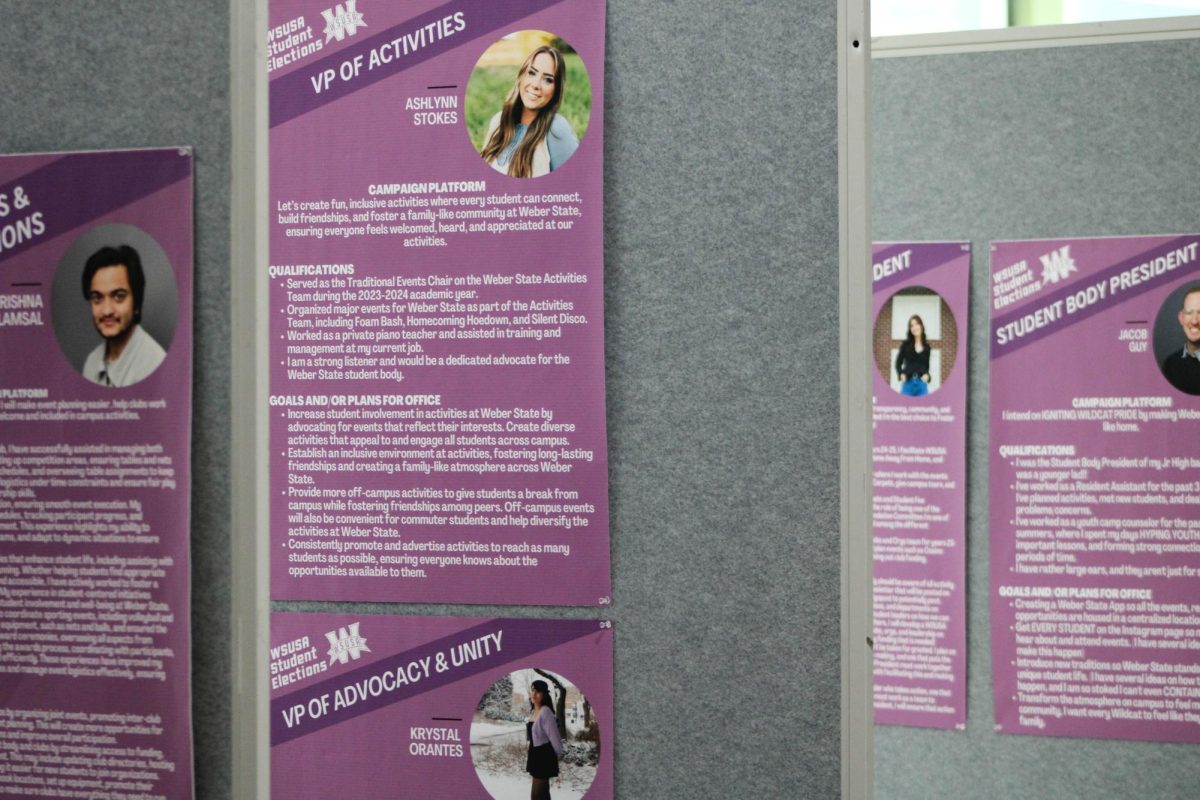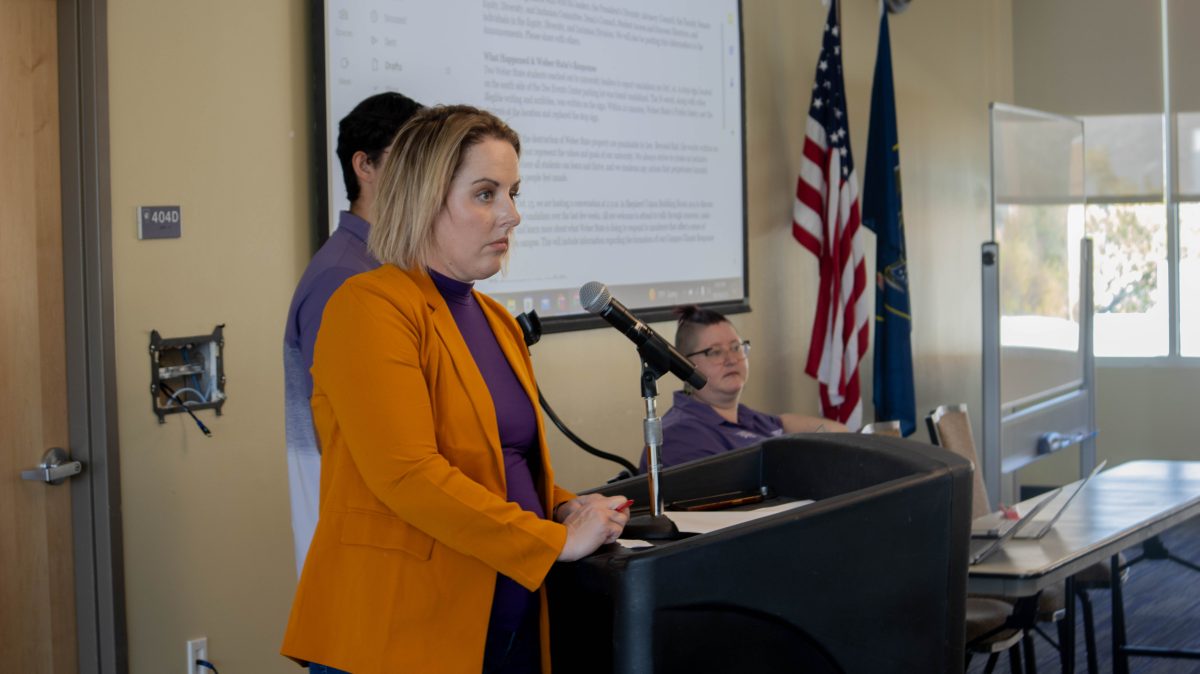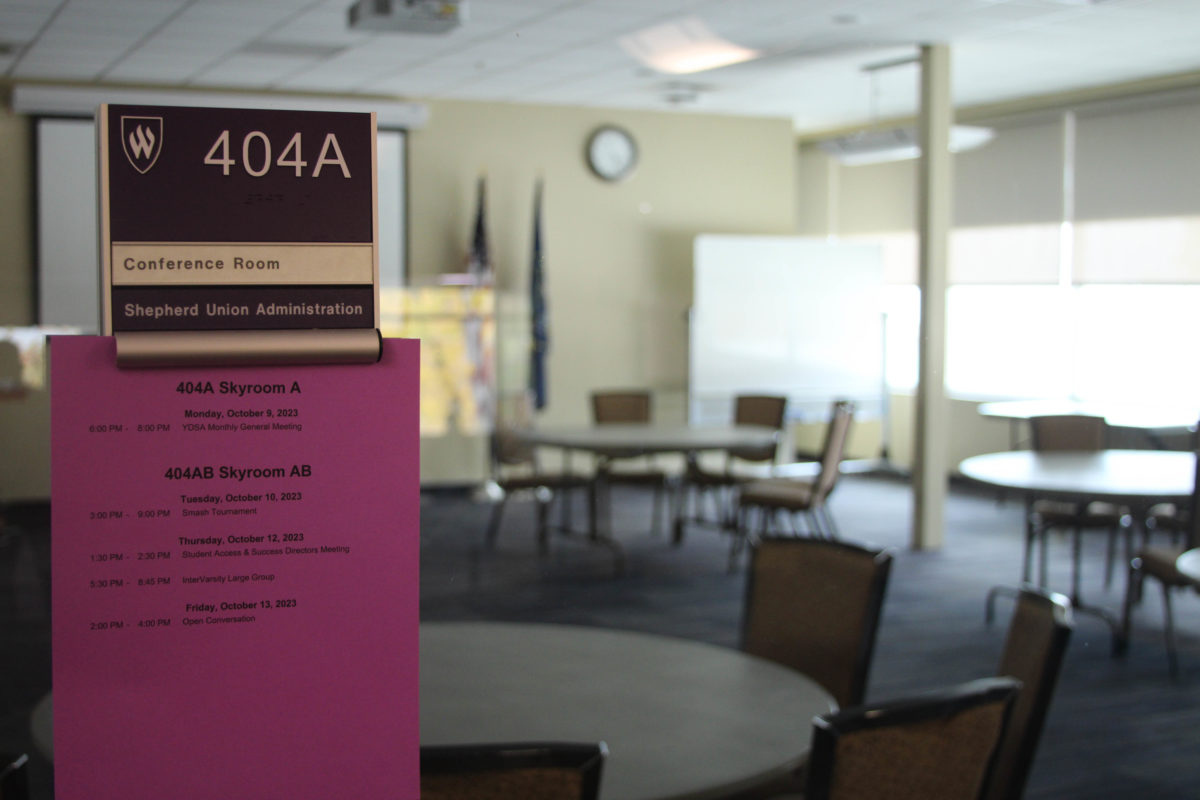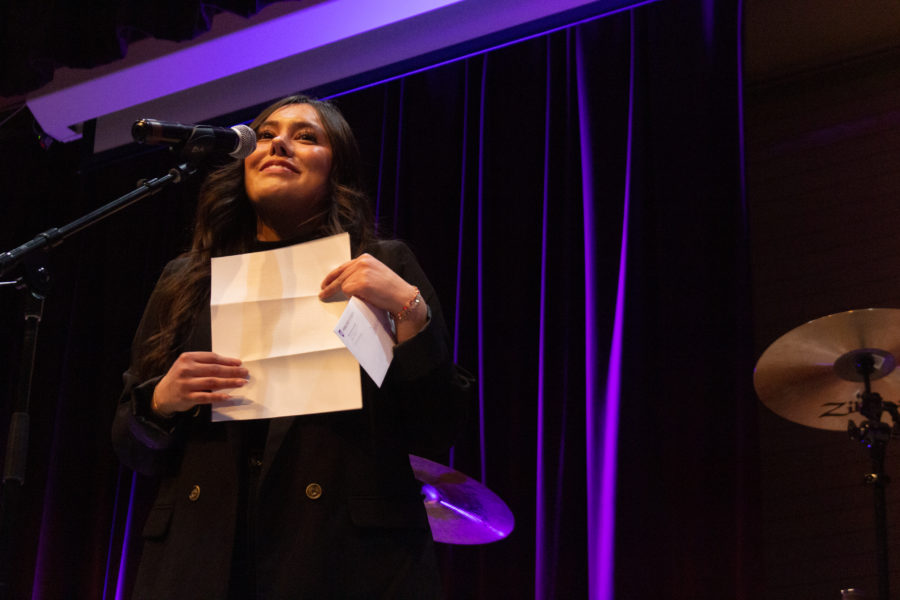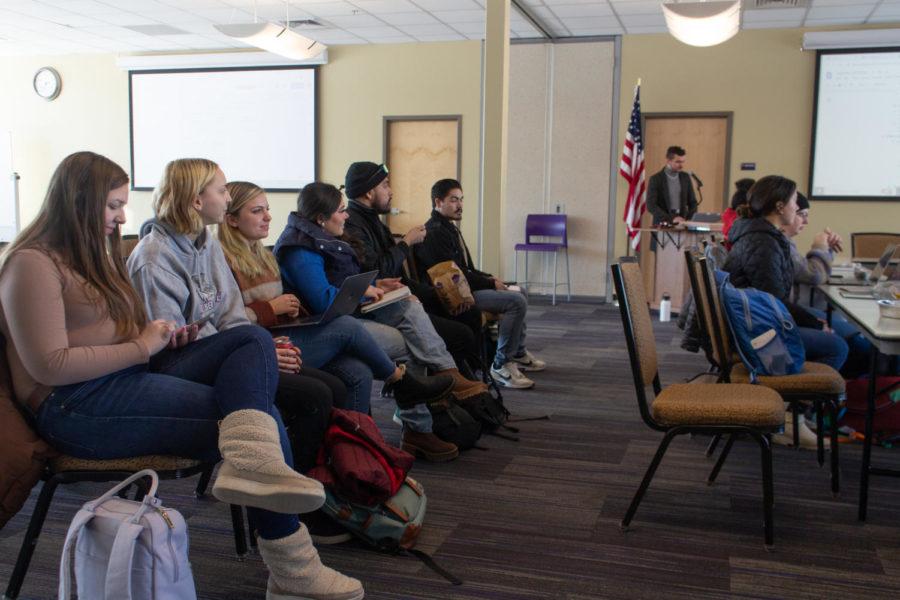The student senate is currently deciding on new senators for three different senate positions, including Hispanic senator, nontraditional student senator and the education senator. The three candidates were formally introduced to the student senate during Monday’s student senate meeting.
In order to apply for one of the student senate positions, a position on the senate must first become vacant. Student senators traditionally serve a one-year term after being elected during spring semester. Sometimes, however, positions become vacant before the term has ended.
Viviana Felix, the Hispanic senator candidate, is already the vice chair of the Hispanic Area Council.
“I didn’t really get involved in leadership roles until I came to college,” Felix said.
Felix has been a part of the Hispanic Area Council for one year, jumping from the position of secretary to president in six months.
Jarreed Ivanich is the candidate for the nontraditional student senator. Ivanich is a nontraditional student himself, being married with a baby on the way.
“It’s important for all students to get involved in some way,” Ivanich said. “Me, personally, I feel that I’m heavily opinionated, and I feel it’s within me to help other people. If they can feed me their opinions, I can get those opinions heard from the quieter people and the people who don’t feel like they can be heard.”
Ivanich is currently working at Weber State University in Education Access and Outreach and is also on the mock trial court team. Ivanich feels like he is the right person for the senate job for two reasons.
“. . . one, my love for Weber State. I feel like this is the best institution on the planet . . . and number two, I feel like I’m a highly motivated person, and when you are motivated and you love what you are doing, it makes it easier to get things done and enjoy it.”
The final candidate is JD Marett for the education senator.
“I’ve been going to school here at Weber State for a long time, about four years,” Marrett said. “For the first few years, I didn’t get involved, but now I feel like the school has done so much for me. I want to give back to it.”
Marett believes he would make a good senator because he has leadership experience at WSU.
“I make friends fast, and I know a lot of people here,” Marrett said, “and I work at the Multicultural Student Center, so I know the people here. I feel like because of my connections, I can help influence decisions being made.”
Next week, the senate will decide which candidates get the senate positions. Along with an application, the candidates must also do a short interview and compose a letter of intent. During Monday’s senate meeting, each candidate was introduced and was given time to talk about themselves and how they plan to accomplish their goals as senators. Current senators were then able to ask them questions.
“As legislative vice president, I appoint my candidate, and then it is up to the senators to confirm them,” said Justin Neville.
There are certain characteristics that the senate looks for in a new senate member.
“I like to see people with a lot of initiative, past leadership experience, and just enthusiastic and motivated people,” Neville said. “Those tend to be the best senators because they are very service oriented. They are interested in helping out other people . . . ”














